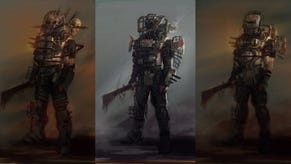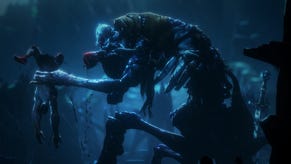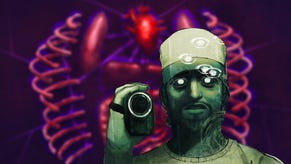The Glory and Carnage of Rocket League's Underground Fight Club
The unofficial league where pros and unknowns alike battle head-to-head for honor and viewer cash pools.
This article first appeared on USgamer, a partner publication of VG247. Some content, such as this article, has been migrated to VG247 for posterity after USgamer's closure - but it has not been edited or further vetted by the VG247 team.
It's his debut tournament, and Robert "Comm" Kyser is up against a mountain. LionBlaze, at match time, is the highest ranked Rocket League player on all of Steam. The fans know him for his fierce groundplay and dextrous dribbling potential. Kyser is new, and isn't used to playing for a live e-audience of thousands. But two games in, and he's ahead. A two-goal advantage in the third won't be enough insurance to guarantee a win, however, especially against LionBlaze. So he does something extraordinary.
LionBlaze backs off for a moment, giving Kyser space to drive the ball up and off the sidewall into the air. He lets it float high above the net as his car continues onto the ceiling, now entirely upside down. He uses one of his two jumps to push himself downward toward the ball, rotating his nose into position, and strikes it hard into the floor. As the ball bounces back up toward him, Kyser—still falling downwards—twists his car to the side, accelerates a few inches toward the net, and uses the tip of his hood to knock it into the corner of the goal... all in five seconds. If a bright red sedan could express astonishment, it would look like LionBlaze's car as it sits helpless beneath Kyser's acrobatics. It was a three-game sweep, and one of the best debut performances by anyone in the club's history.
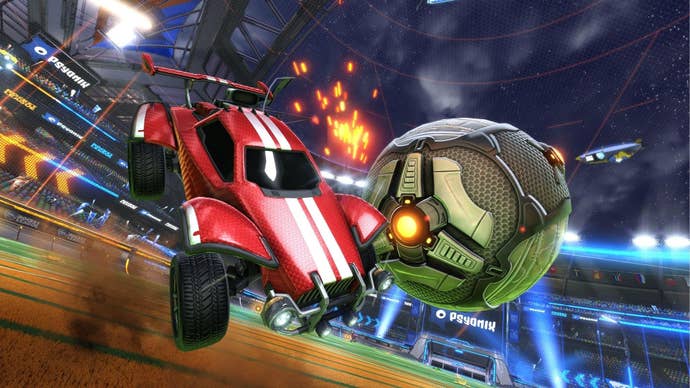
While the "car soccer" game's 3v3 esports circuit has its thrills, the real action is taking place behind the scenes. Ever since 2016, a year after the game's official release, YouTuber and Twitch streamer John "Johnnyboi_i" MacDonald has hosted his own unofficial 1v1 league. The idea is simple: he invites two worthy players to battle in a best-of-five tournament, all while commentating and giving live insights into their distinct styles. Without the comfort of teammates at their back, the players' true mechanical brilliance and strategic thinking are on full display. If they can't get inside the head of their competitor and pull off the most death-defying moves, they're toast.
Whether they come on looking to make a name for themselves, or simply to defend their standing, the drama is delectable. At the helm is MacDonald, a master of ceremonies with an analytical eye for the best 1v1 talent playing today. During his three years of casting and thousands of showmatches, he's facilitated more than $30,000 in prize money transactions from his viewers, and catapulted dozens of newcomers into the spotlight. Like Willy Wonka's golden ticket, an invitation to MacDonald's stream can mean the doorway to cult fame if players make the right impression. In the 1v1 arena, it's everyone for themselves. This is Rocket League's underground fight club.
"Even very experienced players have felt nervous or had 'shaky hands' kind of moments, because even though they've got so much evidence that they're great players, they still want more," says MacDonald, who is 28. "They always have that drive to succeed."
MacDonald's love for sports began on an island in the far northwest of Scotland, where he went to high school. Every town in the country had its own soccer team, and a win meant bragging rights over the neighboring schools. "We were very competitive with it, everyone takes it very seriously," he says. "Trying to win every game even if it doesn't matter...it's still people fighting to the death. I enjoyed that." On television, he watched the professional team from his hometown of Livingston ascend from underdogs at the bottom of their division to make the UEFA tournament championship, cheering them on with each new promotion.
So it was no surprise that by the time the Justin.tv era rolled in, MacDonald's love for competition intersected with his video game interests. Seeing players go head to head in front of a live viewership excited him, and he found himself rapt with the frenzy of World of Warcraft arena matches. In 2015, just over a year after the site was officially designated as what we know today as Twitch.tv, Rocket League was released on PC and Playstation 4. Popular streamers were given advanced copies of the game, and online forums began to bubble about its potential. A whopping 183,000 simultaneous players flooded the Psyonix servers during its first week, many of them Playstation Plus users who were given a free copy with their subscription.
But when MacDonald explored the earliest Rocket League streams and saw what the game had to offer, he wasn't impressed. "I thought, 'That looks really basic. I don't think there's much depth to it. How is this popular?'" he says.
It only took a few games with his friends, however, to shake the skepticism and develop a passion for improving the many subtle techniques that separate the good from the great: maintaining speed and momentum on the pitch, rotating the car mid-air to land the most optimal strike on the ball, conserving boost for the moments when it's needed most, knowing when to commit to an attack and when to play with caution, and predicting the movements of the opponents to stay one step ahead. Just like in soccer, it's obvious when something incredible has been pulled off. Given enough practice, anything's possible.
MacDonald began streaming his own Rocket League play to a handful of viewers when his internet connection allowed, and kept up with the few other Scottish players who broadcast themselves, like Kyle "Scrub Killa" Robertson and Mark "Markydooda" Exton. MacDonald tried to chat them up whenever they streamed on Twitch, happy to encourage Scottish pros as they gained followings within the community. Exton and Robertson soon became regular fixtures on his channel, teaming up with him for matches between their training sessions. They left his stream one day to practice 1v1 against each other, but rather than say goodbye, MacDonald's 10 viewers asked him to spectate their game. The players didn't mind, so the chat told MacDonald to commentate the match while he was at it. Why not?
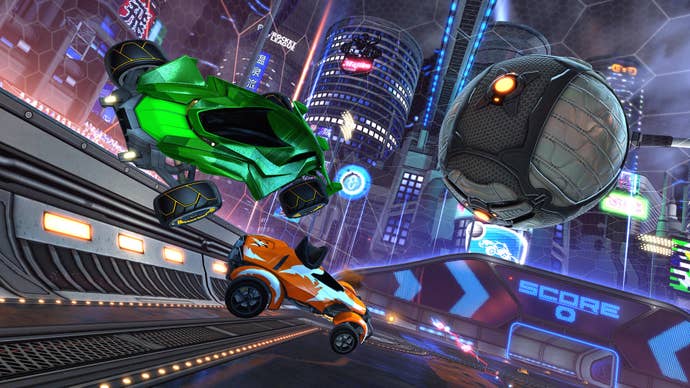
"I didn't commentate 'Rocket League style' as it was at the time, which was maximum excitement and very little knowledge," MacDonald says. "I was just half making fun of all the misplays that Marky and Scrub would make, half trying to get inside their heads and tell people what they're thinking. And people liked it."
So he did it again. The format of the matches was straightforward. No frills or special effects, no lengthy introductions or unnecessary hype. "I never really thought that you had to make things extremely fancy with production value, trying to bait viewers in. I would just show them the gameplay," MacDonald says. "Here are two great players playing the game, and let me tell you why that's exciting. That was it." His audience blossomed from its humble beginnings, consistently reaching into the thousands on Twitch and tens of thousands on YouTube.
As more players were invited to compete, MacDonald noticed the speed at which his club was coming together. He filled viewers in on each competitor's history, their nationality and any connections they might have to one another, an appetizer for the extensive narratives that emerged from the different matchups. France was perhaps the strongest country when it came to overall 1v1 prowess, with its arsenal of exceptional players like Kaydop, Ferra and Fairy Peak proving time and again to be the most patient under pressure and consistent until the final moment. But certain players from Scotland, the Netherlands and America could also hold their own. Rematches heightened the drama, adding exhilarating weight to each goal and giving fans the chance to cheer on their home nations with pride. On some match days, viewers would donate money to a prize pool for the winner. The pot at times reached into the hundreds, even thousands of dollars for a single showmatch.
"It was pretty much very early on I realized, okay, the players are taking this very seriously, they really want to win, so then I should try and give them the best platform possible for them to play on while also trying to provide the best commentary for my viewers as I can," MacDonald says. "It wasn't something that took long to take shape."
Even early on, MacDonald's calm, precise speaking style came as a refreshing alternative to the more boisterous esports broadcasts, something he says his viewers appreciated. Commentating over games was never an idea that crossed MacDonald's mind before he suddenly found himself doing it. Still, traces of the many soccer broadcasters he grew up listening to are evident in the way he frames his matchups. He's careful with the way he portrays an exciting moment, and makes sure not to waste words on things that don't make sense or over-exaggerate a situation just to keep up momentum.
Without the mach-speed distractions of a 3v3 game, MacDonald has the bandwidth to highlight all the meticulous movements and decisions made by the players on a second by second basis. The result, for viewers, is a deeper and more specific profile of each competitor who steps onto the pitch. "Typical Rocket League tournaments have six players on the field all trying to make something happen at all times, so pulling that number down to two where you can talk about more nuanced and subtle parts of the game is nice," says Callum "Shogun" Keir, an RLCS commentator best known for his frothing Game 7 cry "THIS IS ROCKET LEAGUE" in 2018. "You can usually get good insight into a player's philosophy."
These philosophies become clearer the more you watch MacDonald's matchups. When Robertson makes an appearance, you know to expect a risky shooting style and claustrophobic pressure on the ball. On Lethamyr's days, it's all about brick-wall defense and minimal downtime. The depth and intrigue of MacDonald's streams are realized when these styles are tested against one another in different combinations, leading to fantastic tests of players' adaptability and showmanship.
"That's the other thing that players have to realize," MacDonald says. "It's not just winning that gets people's attention. It's winning in style, or having a particularly enjoyable playstyle to watch. You want to see players who are trying to score cool goals and make their opponent look silly."
When it comes to head honchos in the 1v1 arena, none stand taller than Victor "Fairy Peak" Locquet. The 21-year-old French prodigy has logged nearly 8,000 in-game hours, and holds the title for the longest win streak ever maintained on MacDonald's stream: well over a dozen consecutive victories over the course of a year. Locquet, in spite of his humility, says the best word to describe his playstyle is 'clinical.' Underneath his steely, low-toned demeanor is an even steelier and calculated Rocket League competitor, someone who lets his performances do most of the talking. There is intent behind each of his movements, exhaustive attention paid to all facets of his opponent's technique, and a cold, ruthless march in the way he puts the ball into the net.
"Brutal. Absolutely brutal player to play against," MacDonald says. "Because unlike a lot of other players, he's just only trying to win. Always trying to be the player scoring the next goal. It doesn't matter if he's already winning six-nil, he's just trying to score another goal, and another one, and then another one."
Locquet's reputation rapidly ballooned after his debut match in 2017 against Doomsee, in which he swept the English player in three games, including a 10-2 victory in the first. He was recognizable on the field first for his choice of the flatter, longer Batmobile car over the standard Octane. Unfamiliar viewers were quick to support him, sending him compliments in MacDonald's chat and asking each other where he came from. "When you're not that confident because you're new on the game and you see a lot of people, like more than 1,000, just cheering on you... it's like, okay now I can trust myself because people trust me," Locquet says. "It's a good feeling."
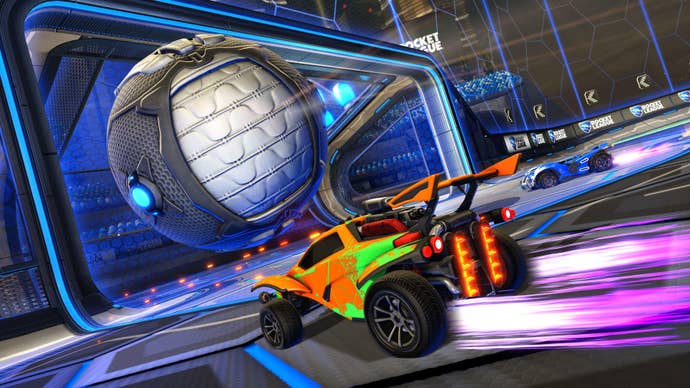
During his run of undefeated matchups in 2018, Locquet—who won the most recent RLCS championship with Robertson and Kaydop of Renault Vitality—came into matches feeling confident, knowing that his consistency and mechanics could outmatch almost anyone. But after a handful of victories, and with no signs of slowing down, MacDonald's viewers became restless. His record on stream was so overwhelming, it felt as if the outcome of his matches had already been spoiled whenever he was invited on. "There were a lot of people saying, 'okay, Fairy Peak's playing, I don't need to watch it,'" Locquet says. His presence became villainous, with many of his own fans rooting against him in favor of a 'chosen one' who would end his reign of terror. So in August of 2018, when he was finally dethroned by Icelandic wonderkid OSM, he felt far more relief than regret. "It refreshed everything," he says.
Having achieved all he can in the 1v1 sector, Locquet's focus has since shifted back to his 3v3 team in the year following his defeat. The pool of competitors on MacDonald's stream today is vast and turbulent. Several newcomers from North America are making waves with their flashy opening performances. Interesting prospects are simmering in the Middle East, Africa and South America. Legends of old like Lethamyr and Kronovi are making return appearances for the recent bounty of sponsored tournaments. Titanic regions like France and the Netherlands are facing stiff competition from their European peers.
MacDonald, meanwhile, is further expanding his gauntlet, with plans to continue spreading the gospel of 1v1's potential for excitement and drama. The game looks to be in good health, even as it approaches five years since its release. The reason, he says, comes from the inimitable core of its gameplay. "It doesn't have the kind of danger that other games do of having the audience move away to another game, because there are no other games like Rocket League," he says. "It's not a shooter. It doesn't fall under that category. It's not a MOBA. It's just car soccer."
Unlike shooters or fighting games, there are no transferable skills that can be picked up from other titles and brought over to Rocket League, Locquet says. If you want to improve in this game, you'll need to start from scratch and put in the work like everyone else. That's what makes the community especially close, he says. It isn't possible to reach the caliber of player on MacDonald's lineup without a true love for the game. Viewers who tune in to the stream understand this, and are united by their respect for the players at the very top who choose to battle for no other reason than upholding honor.
"It's a different form of passion from a group of people who are effectively volunteering to put on a show," Keir says. "If people just so happen to donate for a prize then it's great, but for the most part, it's just a bunch of lads enjoying their style of Rocket League."
As MacDonald carries on with his own league, official RLCS tournaments are growing in size and spectacle with each new season. What was once a competitive circuit held entirely in small theaters and LAN spaces is now a series that sends whole stadiums of fans into hysteria as tens of thousands more watch through Twitch. The announcement that Intel will be hosting a Rocket League tournament at the 2020 Olympics in Tokyo means the doors will soon open to an even larger audience far beyond the world of video games. Events like these are important for the game's lifespan, and serve as thrilling dates for those of us interested in high-level competition to count down to on our yearly calendars.
"But those tournaments don't happen every day," Keir says, "and channels like Johnnyboi's are the gears that keep Rocket League running in the meantime."
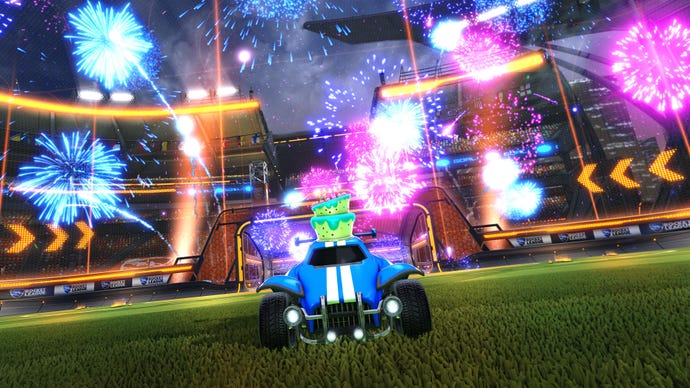

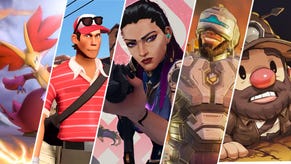
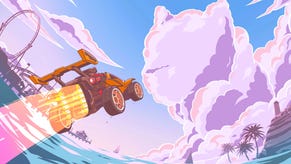
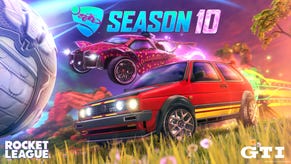

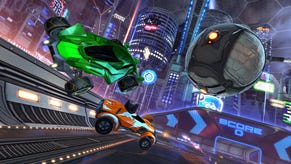
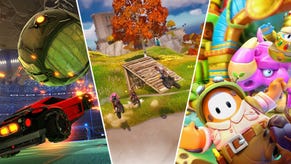
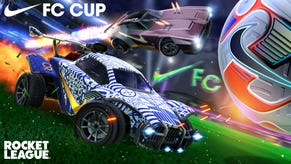
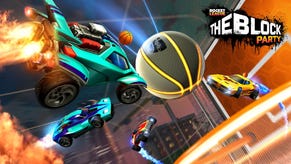
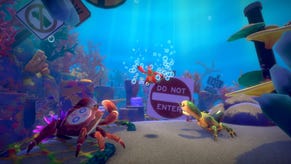
.jpg?width=291&height=164&fit=crop&quality=80&format=jpg&auto=webp)
